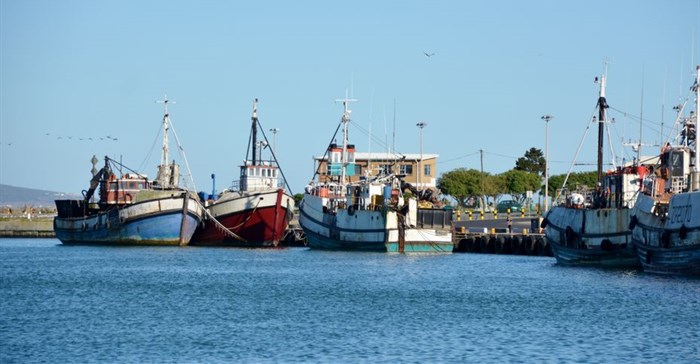Supporting fisheries, tourism, recreation, and thousands of jobs, a sustainable Benguela Current ecosystem is the lifeblood of the ‘ocean economy' on South Africa's West Coast. A workshop has been held in Cape Town during which scientists, government officials, business and civil society representatives considered linkages between the diverse “ecosystem services” provided by the ocean and coastal environment, and how best to measure and monitor both their economic value and environmental health.

©Werner Lehmann via
123RF - Fishing boats in the Velddrif harbour, West Coast, South Africa
The workshop forms part of a project by the Benguela Current Convention (BCC) to strengthen the ability of member states – Namibia, Angola, and South Africa – to monitor the health of the Benguela Current ecosystem in their own countries, as well as implementing an integrated approach to sustainable ecosystem management across national boundaries.
The workshop also aimed to identify gaps in current monitoring activities and data, capacity and resource needs, and how to resolve potential conflicting uses in future.
Developing the maritime economy
“This is vital to maintaining the sustainability of the economic and social benefits to the people who rely on the ecosystem. For South Africa, this is particularly important, given the focus on developing the maritime economy through Operation Phakisa, which has earmarked a number of diverse projects for the West Coast,” project leader Dr Samantha Petersen said.
The productive waters of the Benguela Current support the largest portion of South Africa’s commercial fisheries, with increasing activity in small-scale fishing and aquaculture. The West Coast is also a hub of offshore oil and gas exploration, a focus area for the redevelopment of small harbours and coastal tourism, and home to the Saldanha Bay Industrial Development Zone.
It also has a number of significant conservation areas, provides shelter for migratory bird populations, and is attracting increasing tourism and recreation activities.
“A healthy marine ecosystem provides services that have a measurable social and economic value to human well-being. Some have direct commercial value such as fisheries, mineral and energy resources, and tourism assets, while others such as climate regulation, recreational benefits, and symbolic cultural or spiritual uses, are more difficult to measure the value of.
“Putting a value on the services provided by the ecosystem is important for understanding its benefits to society, promoting conservation, and future decision-making, especially in resolving conflicting uses,” said Oceans Economy Research Chair at the Cape Peninsula University of Technology, and a guest speaker at the workshop, Prof Ken Findlay.
Integrated monitoring of the Benguela ecosystem
Together with the output of this week’s meeting, feedback from workshops in Namibia and Angola will contribute to integrated monitoring of the Benguela ecosystem’s health and the BCC’s planning for future collaborative projects and support to member states.
The Benguela Current sweeps up the South African West coast, along the entire Namibian coastline and into Angola. This creates a Large Marine Ecosystem (LME) with productive resources shared by the three countries.
The Benguela Current Convention, signed by the three countries is the first LME in the world to embrace an “ecosystem approach to ocean governance”, which means managing trans-boundary resources at the ecosystem level, rather than each country acting alone, and balancing human needs with conservation imperatives.
The coastal and ocean resources of the Benguela Current Large Marine Ecosystem (BCLME) are estimated to contribute about $269bn annually to the economies of Namibia, Angola, and South Africa. The BCLME is rich in fisheries resources, oil, gas, diamonds and other minerals, and the West Coast of South Africa is a growing local and international tourism destination.











































